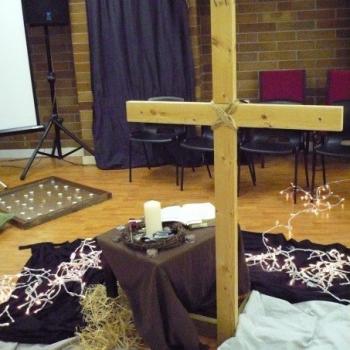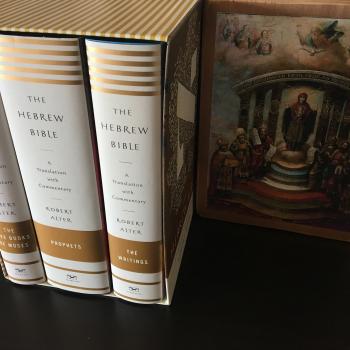Mark Driscoll thinks in theological categories. On Mars Hill Refuge, this is called the “theological swordplay” of concepts that don’t seem to have much reference to Scripture. The authors of Mars Hill Refuge may be right to be distressed, but just going back to Scripture doesn’t do justice to the Mars Hill systematic theological method. Listen to or read Driscoll some time. His mind works in categories. There is a category called “sin” where there are a bunch of actions you do that are “sinful.” There is a category called “fornication” where sexual acts performed before marriage belong; after marriage, the category shifts into “visual generosity” and “loving servanthood,” complete with a taxonomy drawn from 1 Corinthians 6 categorizing sexual acts as “lawful,” “beneficial,” and “enslaving.” There is a category called “religion,” which apparently sucks and doesn’t save from the category called “sin,” and there is a category called “Jesus,” whose categorical “penal substitutionary” atonement both categorically “propitiates” the Father’s categorical wrath and categorically “expiates” the dirtiness felt by those categorized as “abuse victims.” Driscoll’s theology works with frozen categorical concepts, and doesn’t that sound just like the neo-Thomistic rationalism that Hans Urs von Balthasar hated so much that he put wax in his ears while listening to lectures in his Jesuit seminary? In fact, if Driscoll was wanting to get out of his frozen concepts and yet keep his strong emphasis on the cross and Christ, he could give von Balthasar’s dramatic understanding of theology a try, either in Mysterium Paschale or, if Driscoll had some time on a sabbatical, in Theo-Drama.











